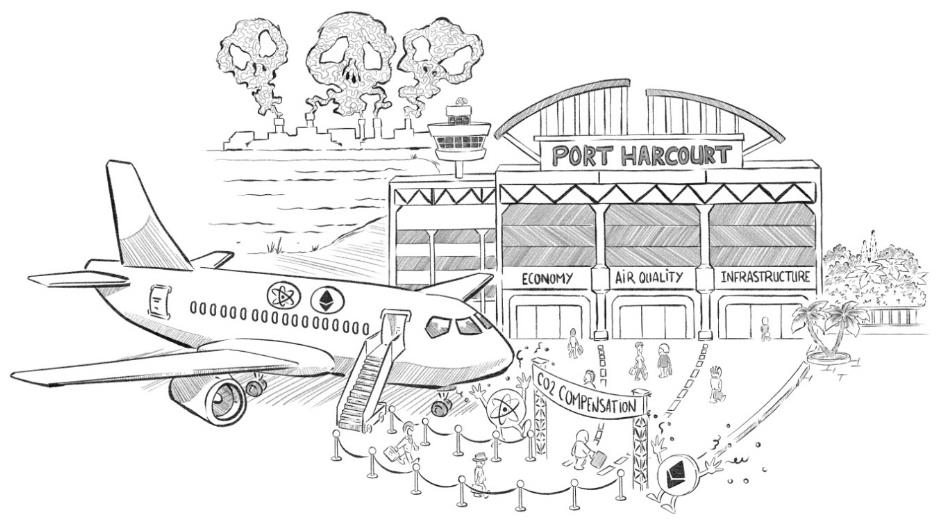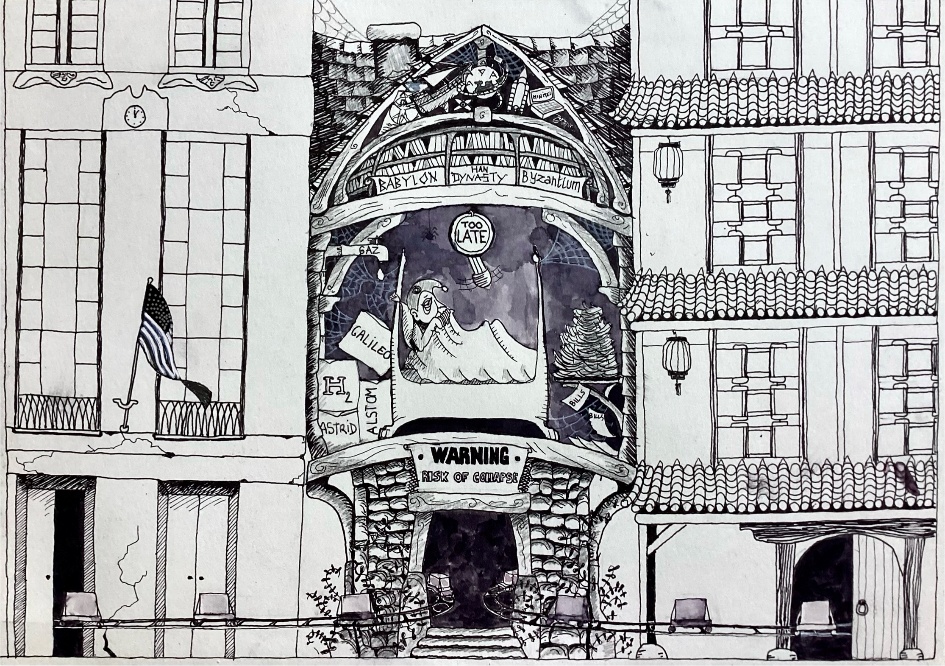How can carbon offsetting and blockchains improve the air quality of Port Harcourt, Nigeria?
Since 2016, the city of Port Harcourt, located in the Niger Delta, an important oil centre, has been suffering from a worsening “Black Soot” issue. Fine particles emitted by gas flaring related to oil extraction, but also by illegal oil refining and by using this artisanal fuel frequently make the air unbreathable. As a result, the city’s air quality index often reaches the highest levels in the world.
Moreover, this issue goes beyond health, since it is also damaging the whole economy of Rivers State. Fishing and farming activities, important sources of employment, are declining as the ecosystem suffers from altered water quality and acidic streams.
Despite media attention, public protest campaigns, such as #StopTheSoot, and efforts by local authorities to mitigate this major health threat, this issue remains largely unsolved to this day.
This failure is understandable as the root of the problem is, in the end, the unchanged severe poverty that keeps the situation deadlocked. Indeed, we cannot expect any voluntary reduction in oil theft when the survival of people there depends on this source of income, nor can we expect oil companies to reallocate their profits to such an extent that the economy of the entire Sub-Saharan region would be transformed. Nevertheless, carbon offsetting could play the role of a third-party mechanism, providing some of the funds that are currently lacking.
Corporations’ need to compensate their carbon emissions could be leveraged to generate benefits for the air quality of cities such as Port Harcourt. Health improvement, the actual intended goal here, would come as an additional benefit of the carbon emission mitigation.
Carbon mitigation opportunities could include, for example, subsidizing access to higher-quality fuels for power generation, improving oil infrastructure to capture and reuse gas that is currently flared, or supporting business development to increase employment and reduce the incentive to engage in oil theft.
Nevertheless, this mechanism would remain a mere wish unless there was a secure way for carbon offset funds to effectively reach the projects they are meant to finance. That is where blockchains could play their part.
Most blockchains are designed as tamper-proof, open-source accounting ledgers, allowing for precise monitoring of how funds are used. Moreover, they are decentralized by definition and thus well suited to collective decision-making. That would give the opportunity to submit in a transparent manner any proposal for a carbon offsetting project to a pool of voters after an open debate on its efficiency.
In addition, while macroeconomic surveys often lack accuracy in their cost-benefit analyses, because of data access issues, with blockchains we could benefit directly and at low cost from insights of the inhabitants themselves in the decision-making process.



